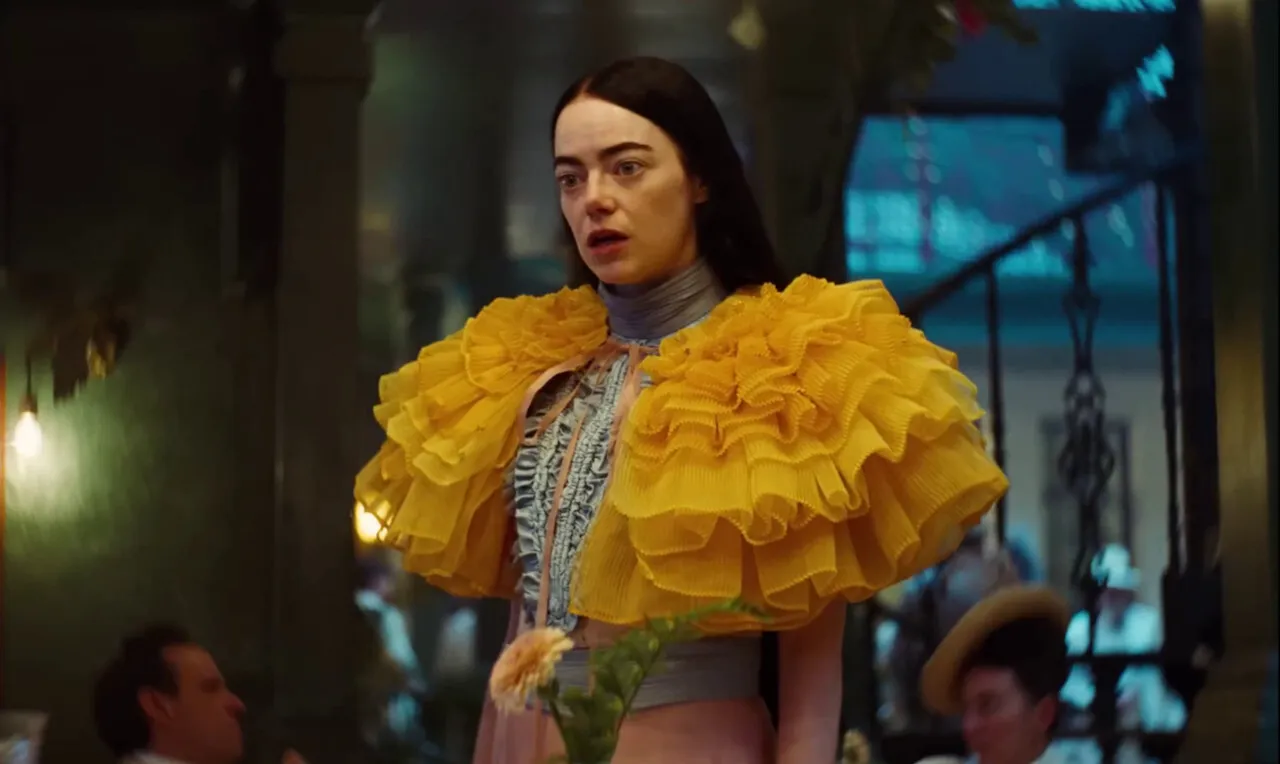Yorgos Lanthimos. What kind of meticulous, grim, utterly fascinating ordeal will you put us through next? The director follows up “The Favourite” with another grotesque spectacle, this time an unapologetically decadent take on the Frankenstein story.
The “monster” in this case is Bella Baxter, played brilliantly by Emma Stone. In this story, based on the 1992 Alasdair Gray novel of the same name, well known surgeon Dr. Godwin Baxter (Willam Dafoe) finds a recently deceased woman in the river and successfully reanimates her with a handy infant’s brain. He names her Bella and "raises" her in his large London estate.
“Poor Things” follows Bella’s jaunt through her new life. Who was she before? We don't really know. But now we see her toddling around, spitting out her food, and clinging to Dr. Baxter (whom she calls him “God”). Pretty soon, though, due to unexplained accelerated maturation, she starts to crave freedom and discover her sexuality. This, along with her physical beauty, arouses the interest of Godwin’s assistant, Max (Ramy Youssef), eventually resulting in a questionable betrothal. For better or for worse, the wedding plans almost immediately derail with the entrance of rakish lawyer Duncan Wedderburn (Mark Ruffalo), who sweeps Bella away to Lisbon where he introduces her to oysters, champaign, and intercourse. Meanwhile, poor Dr. Baxter and Max are left back in London, bereft, while Bella's adventures across Europe continue for the majority of the film's duration.
This film is great in two main ways.
The first is that we get to see the world from Bella's fresh perspective: she bears almost no societal influence. No one has told her what “a woman’s role in society” is; no one has explained the value of money; no one has told her that it’s “unbecoming” of her to enjoy sexual exploits; no one has told her she shouldn't spit out her food if she doesn't like how it tastes. And when, inevitably, people do try to tell her these things, she simply rejects them: “Why keep it in my mouth if it is revolting?”
Bella’s outlook makes her intriguing and indomitable, which, layered on with her beauty, serves to drive the men in this story absolutely mad. The movie's comedy comes largely from Wedderburn’s hapless flailing as he tries to control her with tactics that have worked on other women. Watching his ruination is a joy.
The second great aspect is the stunning environment of the film. Lanthimos is already somewhat known for his costuming and sets, and he outdoes himself here with surrealist backdrops of Lisbon, Paris, London, and Alexandria, and ships and skies and lodgings that look like they could’ve come from the imagination of Dalí.
It’s only right, though, that he should give us something lovely to look at after repeatedly subjecting us to a smorgasbord of bodily grossness. If you’re irked by surgery, cadavers, and/or inelegant sexual encounters, you may want to skip this one (or at least be ready to close your eyes), but that seems to be part of the deal with Lanthimos. He shows you the ugly to show you the redeemable. For all its ghastliness, this film is also imbued with a surprising portion of optimism.
“Carve with compassion” Dr. Baxter says at one point as he cuts open a body. We have to believe this is Lanthimos speaking, because this is what he has done, taking his knife to society once again, but doing it with humanity.
